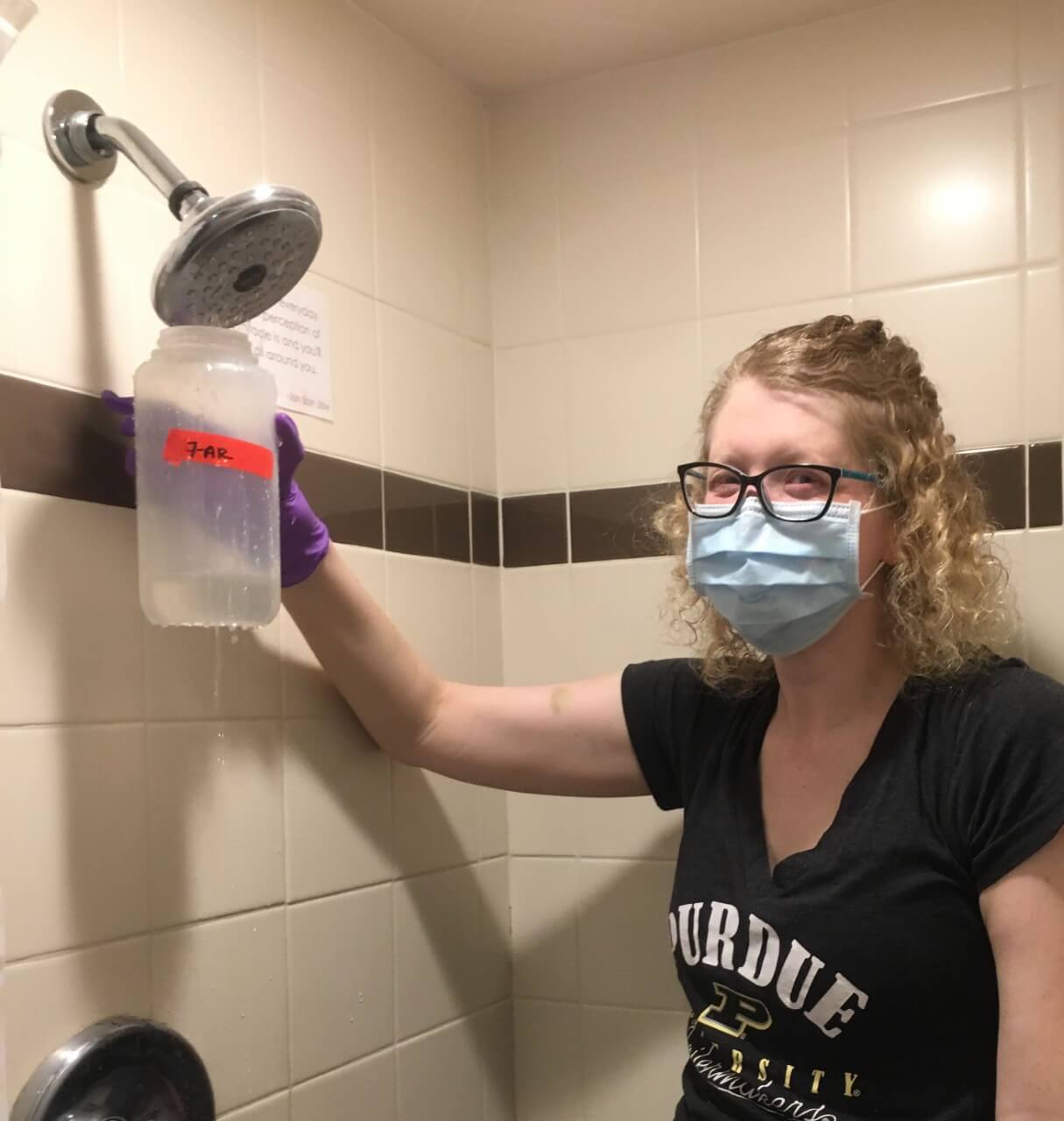New ABE professors water safety research assumes prominent role during pandemic
Starting in a new position during the middle of a pandemic is challenging. For Caitlin Proctor, assistant professor of agricultural and biological engineering (ABE) and environmental and ecological engineering, it was also in keeping with an already tumultuous year.
Proctor began in her position this semester, after two years as the Lillian Gilbreth Postdoctoral Fellow in the College of Engineering. During her fellowship, Proctor researched drinking water and the ecological and biological interactions that affect its safety.
“I have been working in water safety for a while,” Proctor said. “I found this niche early on in my career. It’s not just a matter of science; water safety is also about understanding infrastructure, codes and policies.”

Proctor’s work, which focuses chiefly on water quality within buildings, became especially relevant during the COVID-19 pandemic, as buildings and their water systems stood dormant for months at a time. “When water sits still in the pipes for long periods of time it creates a perfect environment for bacteria to grow and metals to get into the water,” she explained.
Over the past year, Proctor worked with other Purdue researchers on a National Science Foundation (NSF) funded study exploring what happens to a building’s plumbing ecosystem when it shuts down for long periods. The study, published in the American Water Works Association Water Science journal, garnered significant press coverage, including from The New York Times.
Proctor is now engaged in regional work regarding water safety that involves issuing guidance and best practices for when buildings reopen to the public and employees. Proctor said the work would continue even as she begins in her new faculty position.
“Traveling during a pandemic can be complicated,” Proctor added. “But teaching during a pandemic, that’s a whole new kind of adventure.”





